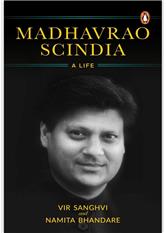Madhavrao Scindia: A Life
Suave, educated, secular and with a reputation for unwavering honesty, Madhavrao Scindia did not conform to the conventional image of the Indian politician. Despite his liberal outlook and his whole-hearted espousal of democratic values, Madhavrao, son of the last ruling king of Gwalior, did not forget his heritage: he was inextricably linked with the people of Gwalior and Guna, who unfailingly voted for him in all the nine elections he contested. To the world at large he was a successful minister and a leading light of the Congress party, but at heart he remained a simple family man, who did not allow either his ancestry or his political status to define him. What made Madhavrao Scindia one of the most fascinating figures in contemporary Indian politics? The answer lies, perhaps, in the way Madhavrao chose to live. Born with life's plan neatly laid out for him, the title to a 21-gun salute state a political career chosen for him by his mother and vast estates in several cities, he sought instead to tread a path that was neither predictable nor easy. Madhavrao Scindias life reads very much like the plot of a grand novel. There is the bitter falling out with his mother, the Rajmata Vijayaraje Scindia, a powerful force of the Jana Sangh a host of minor and major characters ranging from intriguing courtiers to wily politicians a battle with at least two Congress governments (the first during the Emergency and the second during Narasimha Raos regime) and, finally, Madhavrao's tragic and untimely death.This is the story of a man who was born a maharaja but chose to live as a democratic citizen of India. Vir Sanghvi and Namita Bhandare bring alive his tale in this riveting biography that is as much a chronicle of modern Indian politics as it is a portrait of a fascinating life.

